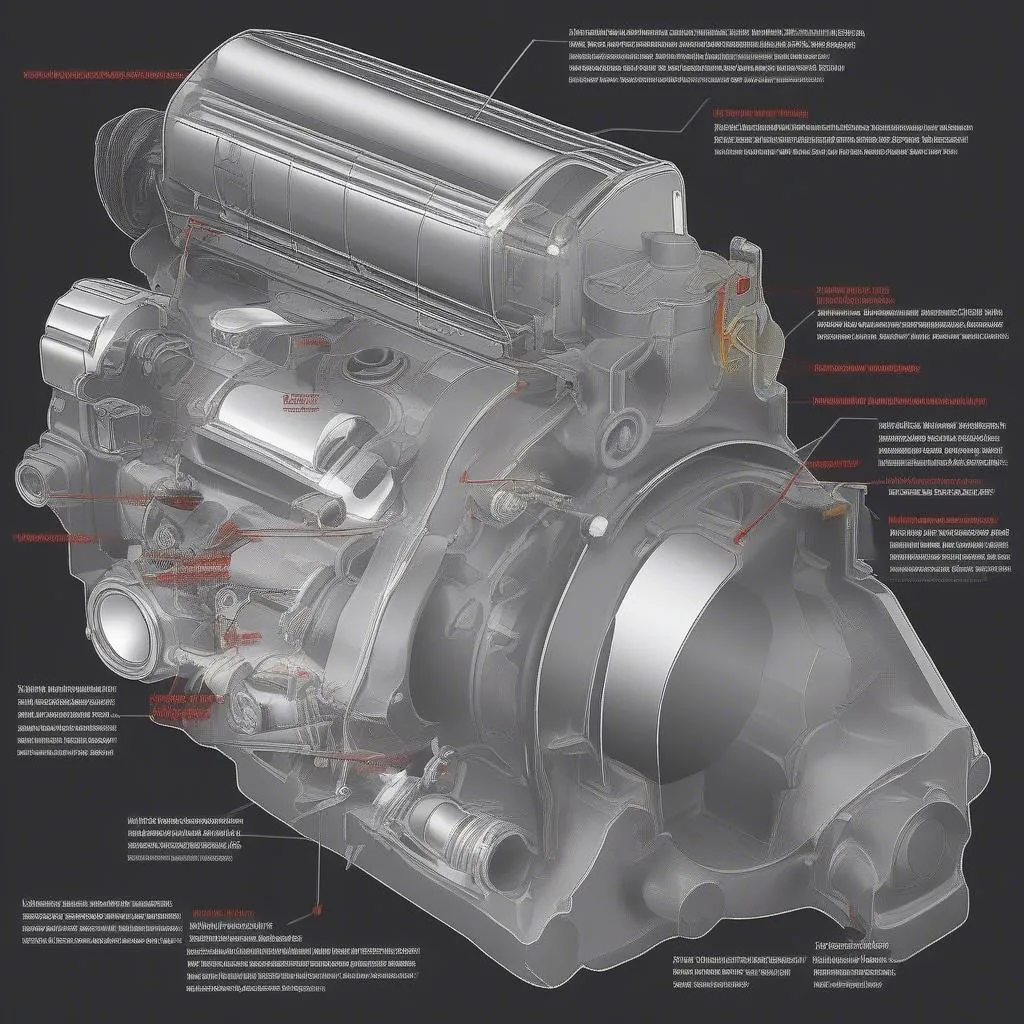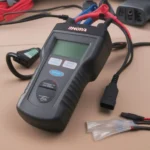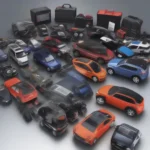Let’s be honest, there’s nothing more frustrating than hopping into your car, turning the key, and hearing… nothing. Your car just refuses to cooperate. And to make matters worse, you’ve checked the battery, and it seems perfectly fine. You’re left scratching your head, wondering what’s going on.
Don’t worry, you’re not alone! This is a common problem, and in this article, we’ll break down the most likely culprits. We’ll also look at some of the most common questions car owners ask when they face this situation, and provide clear explanations and troubleshooting tips.
Understanding The Problem
Think of your car’s starting system as a complex chain. Each link needs to function correctly for the engine to fire up. The battery is just one link in this chain. When your car struggles to start, but the battery appears fine, it’s a sign that the problem lies somewhere else in the starting system.
From a mechanic’s perspective:
A mechanic will tell you that the starting system is all about converting stored electrical energy into mechanical energy. The battery is just the storage unit. The starter motor is the key component that uses the electricity to turn the crankshaft and get the engine going.
From a technical perspective:
The starting system involves a chain of components working together. The ignition switch receives input from the key, sending a signal to the starter relay. This relay then activates the starter motor, drawing current from the battery to spin the engine. If any of these components are faulty, you’ll face issues with starting your car.
Diagnosing the Problem
So, if the battery isn’t the issue, what could be causing the car to struggle to start? Here are some of the most common culprits:
1. Starter Motor Issues
The starter motor is responsible for cranking the engine over. When it fails, your car won’t even attempt to start. Here’s a common telltale sign: you hear a clicking sound when you turn the key but the engine doesn’t turn over. This is a classic symptom of a failing starter motor.
How to troubleshoot a starter motor:
- Test the starter motor: A mechanic can test the starter motor directly to check for proper operation.
- Inspect the starter motor cables: Corrosion or loose connections can prevent the starter motor from receiving adequate power.
2. Faulty Starter Relay
The starter relay is like a switch that controls the flow of power from the battery to the starter motor. A malfunctioning relay can prevent the starter from receiving the necessary power to crank the engine.
How to troubleshoot a starter relay:
- Check the starter relay: You can use a multimeter to test the starter relay and confirm if it’s faulty.
- Replace the starter relay: If you suspect the relay is the problem, replacing it is a fairly straightforward repair.
3. Ignition Switch Problems
The ignition switch is the starting point for the entire process. If it’s damaged or malfunctioning, it might not be sending the signal to the starter relay, preventing the starter motor from engaging.
How to troubleshoot an ignition switch:
- Check for loose connections: Inspect the ignition switch for loose connections or signs of wear.
- Test the ignition switch: A mechanic can test the ignition switch to see if it’s sending the correct signals.
4. Weak Alternator
The alternator is responsible for charging the battery while the engine is running. A weak or faulty alternator can’t provide enough power to the starting system.
How to troubleshoot an alternator:
- Check the alternator’s output: A mechanic can use a multimeter to test the alternator’s output voltage.
- Inspect the alternator belt: A worn or loose belt can prevent the alternator from spinning correctly.
5. Battery Cables and Connections
Don’t underestimate the power of a good connection. Corrosion or loose connections in the battery cables or the wiring to the starter motor can disrupt the flow of power, preventing the starter from working.
How to troubleshoot battery cables and connections:
- Inspect the cables for corrosion: Clean any corrosion from the battery terminals and cable ends.
- Tighten connections: Ensure all connections are clean and tight.
6. Fuel System Problems
While it might seem counterintuitive, fuel system problems can also cause a car to struggle to start. If the car isn’t getting enough fuel, the engine won’t be able to ignite.
How to troubleshoot fuel system problems:
- Check for fuel pressure: A mechanic can test the fuel pressure to see if the fuel pump is delivering enough fuel.
- Inspect the fuel lines: Check the fuel lines for leaks or blockages.
Frequently Asked Questions
Here are some of the most common questions people ask when their car struggles to start but the battery seems fine:
Q: Will a weak battery cause the car to start then die?
A: Yes, it’s possible. A weak battery might have enough power to start the car, but not enough to keep it running for long. The alternator is supposed to recharge the battery while the car is running. But, if the alternator is also faulty, the battery will eventually drain, causing the car to die.
Q: How do I know if it’s the starter or the battery?
A: If the starter motor isn’t engaging at all (no clicking sound), then the problem is likely the starter. If you hear clicking, but the engine doesn’t turn over, it could be a faulty starter, a bad battery connection, or a weak battery.
Q: Can a bad spark plug cause starting problems?
A: Yes, a bad spark plug can prevent the engine from firing. If your car is struggling to start and has been running rough, you should check the spark plugs.
Q: How do I check the starter motor?
A: It’s best to have a mechanic test the starter motor directly. You can also visually inspect it for signs of damage or wear.
Tips for Troubleshooting
- Check the battery: Even though the battery might seem fine, a simple voltage check can rule out any issues with its charge.
- Listen carefully: Pay attention to any sounds your car makes when you try to start it. These sounds can provide clues about the problem.
- Consult a professional: If you’re not comfortable troubleshooting these issues yourself, consult a qualified mechanic.
Conclusion
When your car struggles to start, but the battery is fine, the problem lies somewhere else in the starting system. By understanding the common causes and troubleshooting steps outlined above, you can better diagnose the issue. If you find yourself stumped, don’t hesitate to reach out to a professional for assistance.
Do you have any questions or insights to share about car starting problems? Leave a comment below, and we’ll be happy to discuss it further!
Looking for expert help with your car’s electrical system? We offer comprehensive diagnostics and repair services. Contact us at +84767531508 for immediate assistance.
Remember, a well-maintained car is a happy car. And a happy car is one that starts when you need it to.



